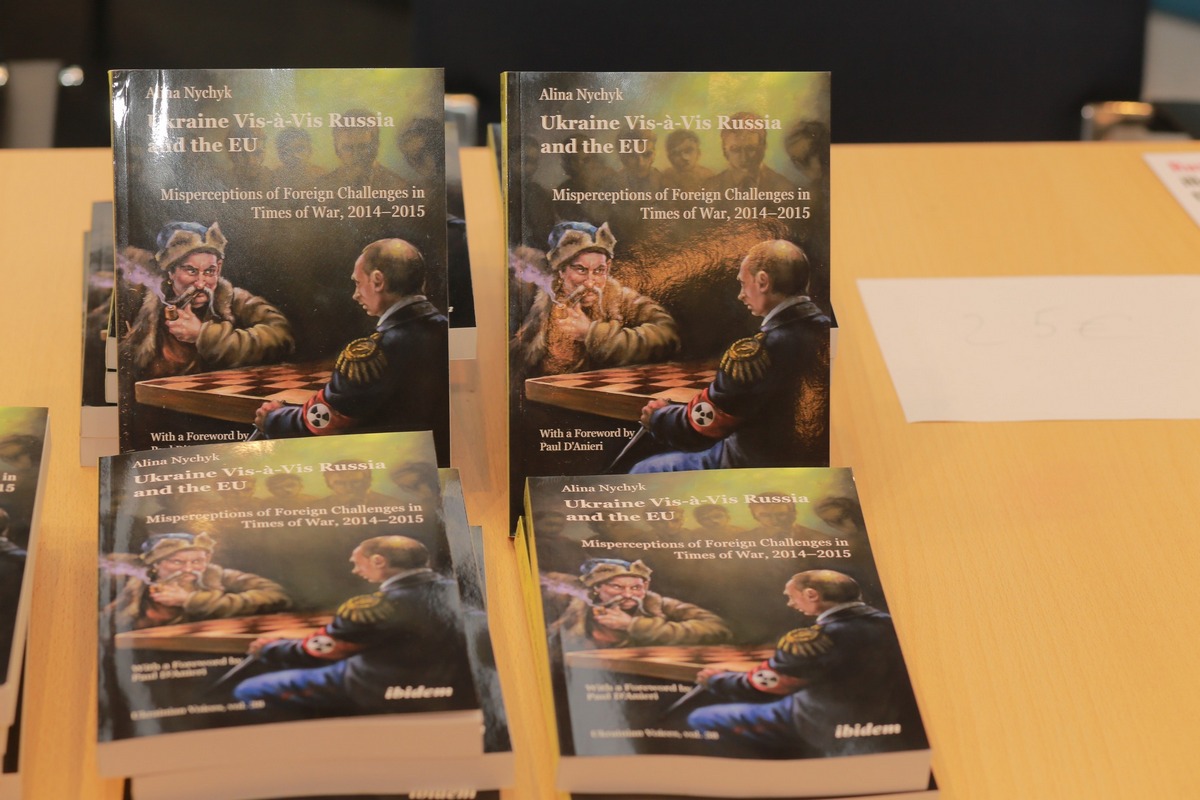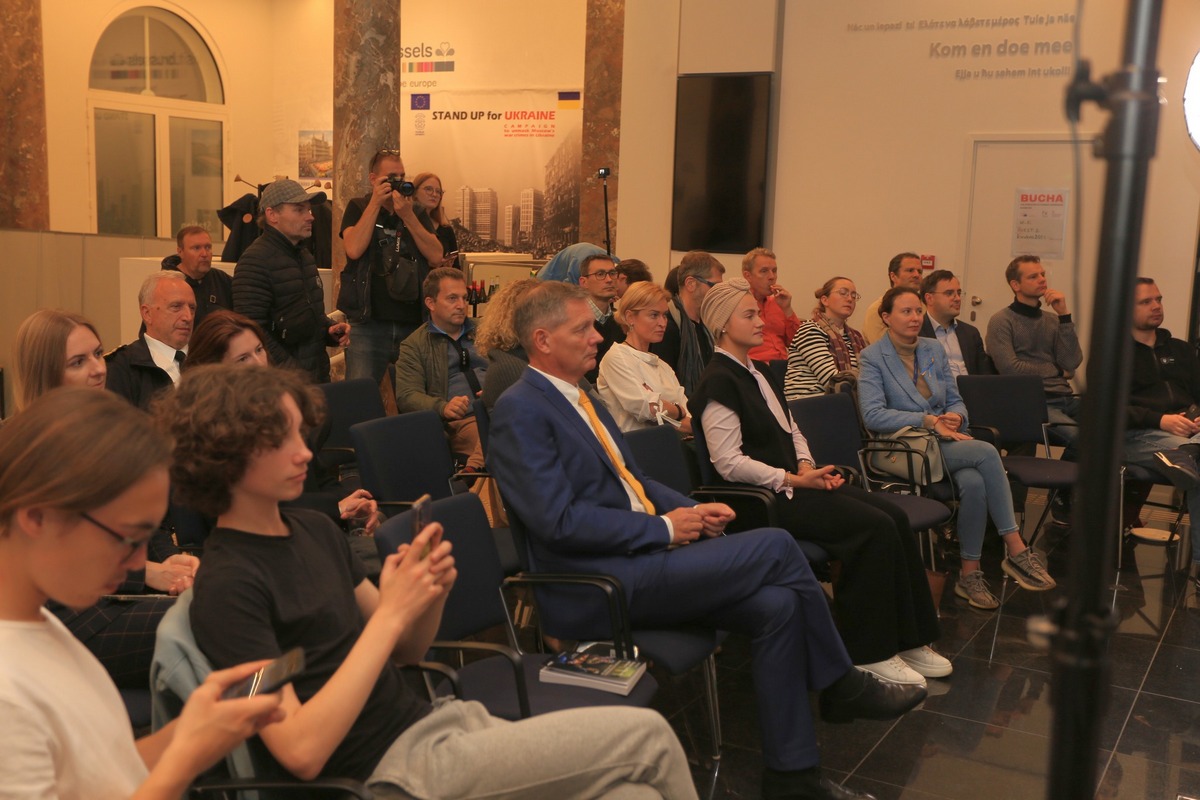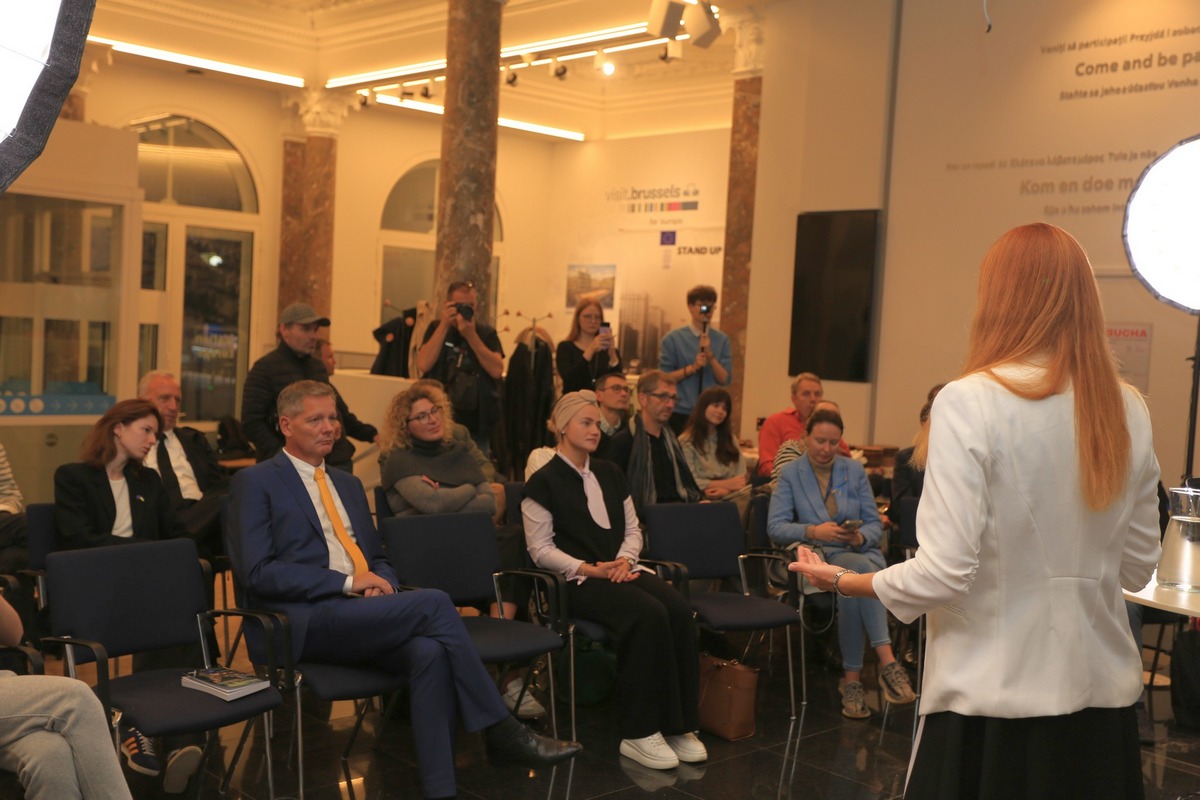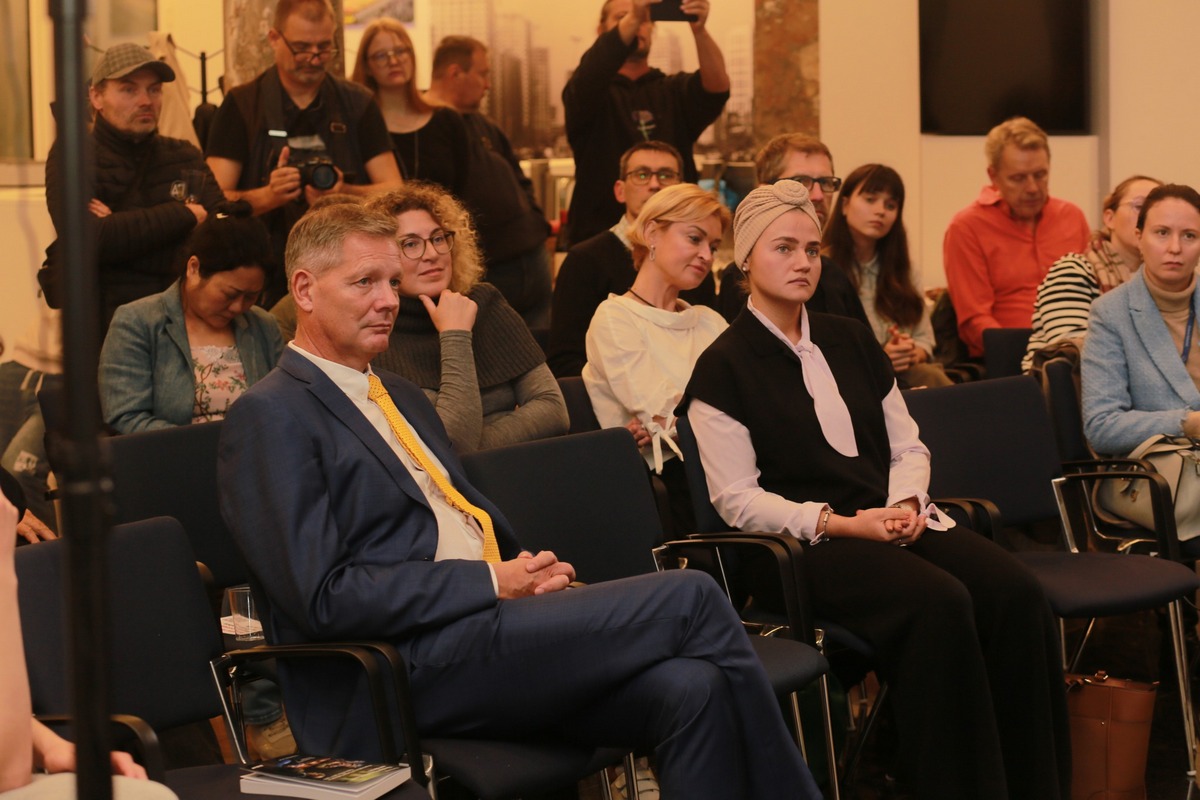The presentation of the book titled Ukraine Vis-à-Vis Russia and the EU: Misperceptions of Foreign Challenges in Times of War by Ukrainian academician Alina Nychyk. The author examines the formation of Ukraine’s foreign policy in relation to the European Union and russia, starting from the first years of independence and up to the beginning of the full-scale russian invasion.
The meeting was held in the Ukrainian Hub with the assistance of Promote Ukraine, the organization promoting initiatives that protect the interests of Ukraine and Ukrainians at the EU level.
The author of the book is a Ukrainian currently living in Switzerland and receiving a scholarship at the Zurich School of Economics. Alina studied at eight universities in different countries and speaks five languages. The book is based on her doctoral research at the University of Manchester, which concerned the foreign policy of Ukraine before the start of the russian-Ukrainian war. She focused on our country’s relationship with the European Union and russia, as well as the misconceptions about European integration and partnership with the North Atlantic Treaty Organization (NATO), which led to serious problems during a full-scale war.

While working on the book, Alina Nychyk conducted 38 interviews with politicians, journalists, and experts from Ukraine, the EU, and russia. The respondents include the European Commissioner for Enlargement and European Neighbourhood Policy from 2010 to 2014, Štefan Füle, who was involved in the negotiations on Ukraine’s association with the EU; former President of the European Council, Herman van Rompuy; employees of the European Commission, ambassadors of European countries to Ukraine, Polish and German politicians, Ukrainian people’s deputies and ex-ministers of foreign affairs.
Many of the respondents indicated that Ukraine was not a strong player in the field of foreign policy before the beginning of the russian invasion. The current war has shown a lot of mistakes and unprofessionalism in this area.
Russia invests enormous resources in promoting its narratives, Alina Nychyk continues. They are broadcast by numerous bots, Telegram channels, and social networks, as well as by the russian state-owned propaganda company Russia Today, whose activities are aimed at foreign audiences. On the part of Ukraine, this direction lags significantly. For russia, the information component is one of the war strategies. At the same time, many citizens of Ukraine and the EU naively believe that “good will overcome evil and every reasonable person will understand everything by himself.”
Many of the mechanisms of EU policy were tested for the first time during the russian-Ukrainian war, the academician explains.



Regarding the prospect of Ukraine joining the EU, Alina Nychyk believes that it is unlikely in the next five years. Only very serious upheavals and geopolitical changes can accelerate this process. Ukraine can join the EU if russia becomes a very weak or, on the contrary, a democratic state, believes Alina Nychyk.
Lyudmila Makei
Photo: Promote Ukraine’s Facebook page

 THE NATIONAL UNION OF
JOURNALISTS OF UKRAINE
THE NATIONAL UNION OF
JOURNALISTS OF UKRAINE
















Discussion about this post